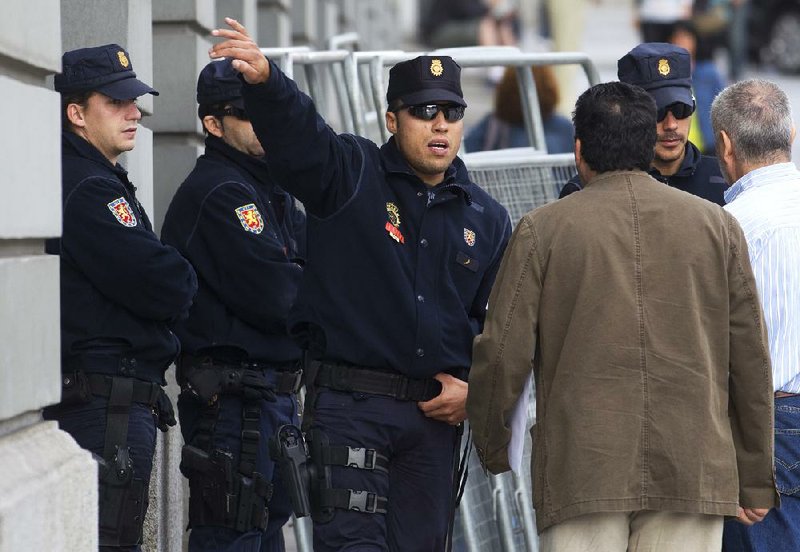MADRID, Spain — The Bank of Spain said Friday an independent audit of the country’s troubled banks shows they would need an extra $76.3 billion to cover for further economic shocks.
The stress tests’ findings, released by consultants Oliver Wyman, will help the country decide how much money it will tap from a $130 billion European loan facility offered in June to prop up its financial sector.
Spain’s banks have been struggling under the weight of toxic assets stemming from the collapse of the country’s property market in 2008. Saddled with these bad loans and failed building projects, the country’s banks have been reluctant to loan more money to businesses and households, stunting the economy. The European loan facility is to be used to cover these bad loans and shortfalls, thereby freeing up the banks to do business again.
The Bank of Spain’s figure does not include the effects of ongoing banking mergers or taxation. Including those two elements, the shortfall drops to $70 billion.
Bank of Spain deputy governor Fernando Restoy said some 400 auditors went through the books of 14 lenders - about 90 percent of the Spanish banking system - analyzing their capital cushions under adverse scenarios.
“We wanted [the tests] to be the toughest ever,” Restoy told reporters at a news conference.
Spain commissioned the independent stress test as part of the conditions agreed in July for the European bailout. The attempt to show how its banks would bear an extreme scenario in which the economy would shrink for three years in a row is part of the government’s drive to show it is fixing Spain’s economy as it considers whether to seek a further rescue package from Europe.
“These are important steppingstones on the way for Spain,” said Holger Schmieding, chief economist at Berenberg Bank in London, referring to the test. Still “there will always be people in the market who question the numbers,” he said.
Jean-Claude Juncker, head of the eurozone group of countries, said he was “comforted” by the results, saying the $130 billion earmarked to help Spanish lenders “should be more than adequate” for their capital needs.
The European Commission said in a statement that recapitalization of the first group of banks is scheduled to occur by November, following approval by Spanish and European authorities.
Restoy said the lenders needing to shore up their capital will have to tell the government whether they need public aid or intend to raise their own funds.
Information for this article was contributed by Charles Penty and Emma Ross-Thomas of Bloomberg News.
Business, Pages 36 on 09/29/2012

